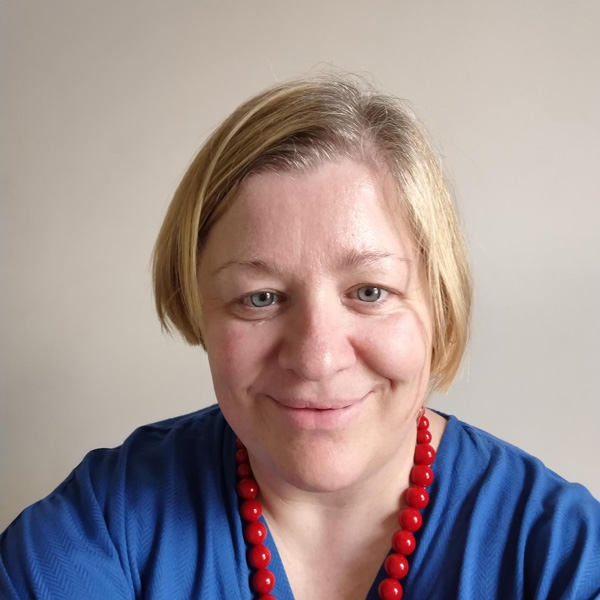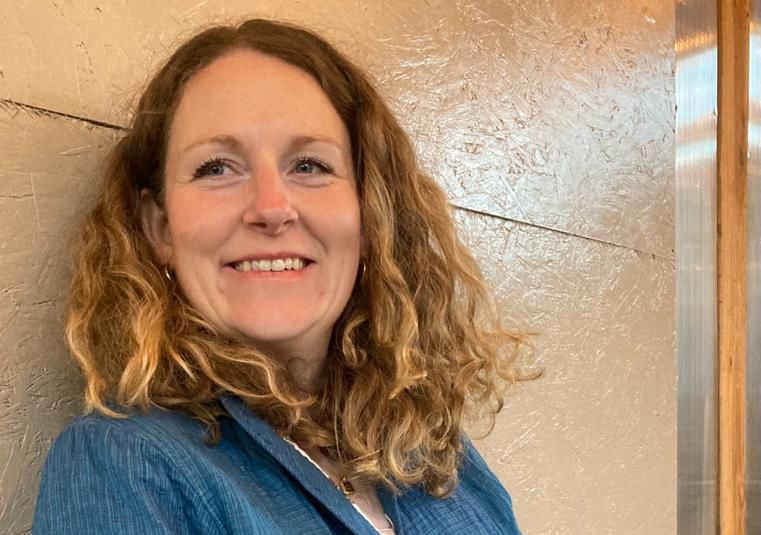
Clare Hollinshead
Clare Hollinshead felt her concerns were dismissed and downplayed due to her gender and age when she presented with symptoms in her thirties.
After experiencing heavy and frequent bleeding in 2016, Clare was informed by her GP that a scan revealed a small growth on her womb and was advised she should be seen by a consultant.
A consultant reviewed her scan but said no further tests were needed due to her age. As she was 37 at the time, she was advised it “wouldn’t be anything sinister” and the consultant even suggested she should start weightlifting.
The consultant offered an ablation of the womb as an option to reduce the bleeding. Two days after the procedure, Clare was in A&E with suspected sepsis. Despite having scans during this emergency admission, it wasn’t spotted that the coil inserted during the ablation was sitting in her cervix instead of her womb. Doctors couldn’t explain the haemorrhaging Clare was experiencing and advised it must ‘just’ be healing from the ablation and infection and she was discharged.
Four months later, Clare had a follow up with the consultant who still couldn’t understand why she was bleeding so heavily daily, and for months. Following an internal exam, they suggested her coil didn’t look quite right and removed it. She was prescribed fibroid medication, despite not having any fibroids, but nothing else was suggested or offered.
The removal of the coil caused another infection and another visit to A&E. On admission this time – a year since her GP initially advised of the growth – an ultrasound showed a huge area of concern in her womb. Following surgery and biopsy, Clare was told she had endometrial cancer and needed a hysterectomy.
Clare said: “Waiting to be wheeled down to the theatre for surgery, I was then told by the surgeon that they could also see an area of concern on my ovaries and felt it best to remove those too. I was left concerned that the cancer had already spread but had to manage these feelings alone as I waited to be taken down for the removal of my womb, ovaries and cervix.”
Following surgery, Clare’s cancer was described as advanced with confusion over whether it was endometrial, ovarian, or both. She was considered ‘unusual’ as this cancer typically affects older women.
“I had chemotherapy, radiotherapy, chemoradiation and brachytherapy, all brutal but it didn’t work and in 2018 I was told my cancer was incurable and I was looking at a few short months of life. Cancer had spread throughout my pelvis, to my lungs and brain and a large tumour was wrapping itself around my bowel. There were concerns about my liver and kidneys and I was stopped from driving, advised not to be left alone and certainly not trusted to look after my small children alone who were 5,7 & 9 at this point.
“Following good advice, I told my children I was dying, still the most heart-breaking day of it all to date. Chemotherapy wasn’t effective for me as the cancer grew while I was receiving it – I was told I was out of options. After asking about immunotherapy, I was told it wouldn’t work and I was referred to palliative care.
“I then decided I needed a second opinion for peace of mind and to show my children I did everything I could to be around for them. A different (private) consultant saw me, explained that some of what I had been told was misleading and that immunotherapy might work wonders or might reduce the time I had left. I had to decide.
“I chose to take the risk and am now in full remission with no evidence of disease. I wasn’t able to access the drugs that have saved my life on the NHS so have become a private patient which brings its own feelings and guilt.
“I had four and a half years of immunotherapy treatment and have been living without it for just over a year which is now scary. I’ve been told that there’s no roadmap for this and it’s now wait and see if it returns. Every scan both terrifies and resets me as I start each six-month period anew.
“Had my female-related symptoms been taken seriously to start with and my age not dismissed but my voice been heard that everything I was experiencing was unusual for me, I might have avoided a huge amount of trauma. I am desperately sad that there were occasions missed to pick up this cancer and yet I remain grateful to the female GP who told me to pursue answers and the female gynae-oncologist who offered to treat me privately when I’d ran out of options. I can only hope the learning from my completely unexpected remission can help women coming after me.”






